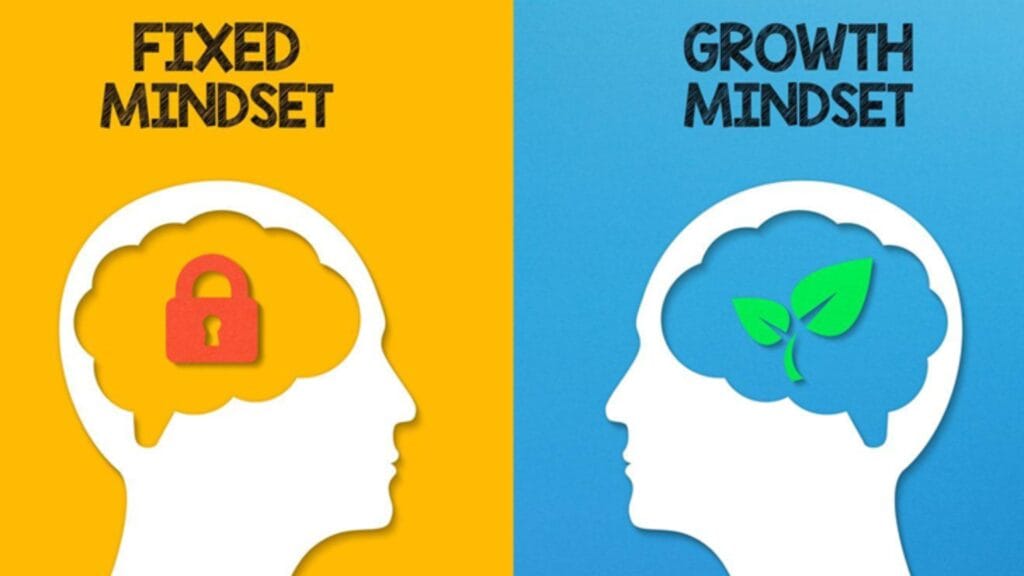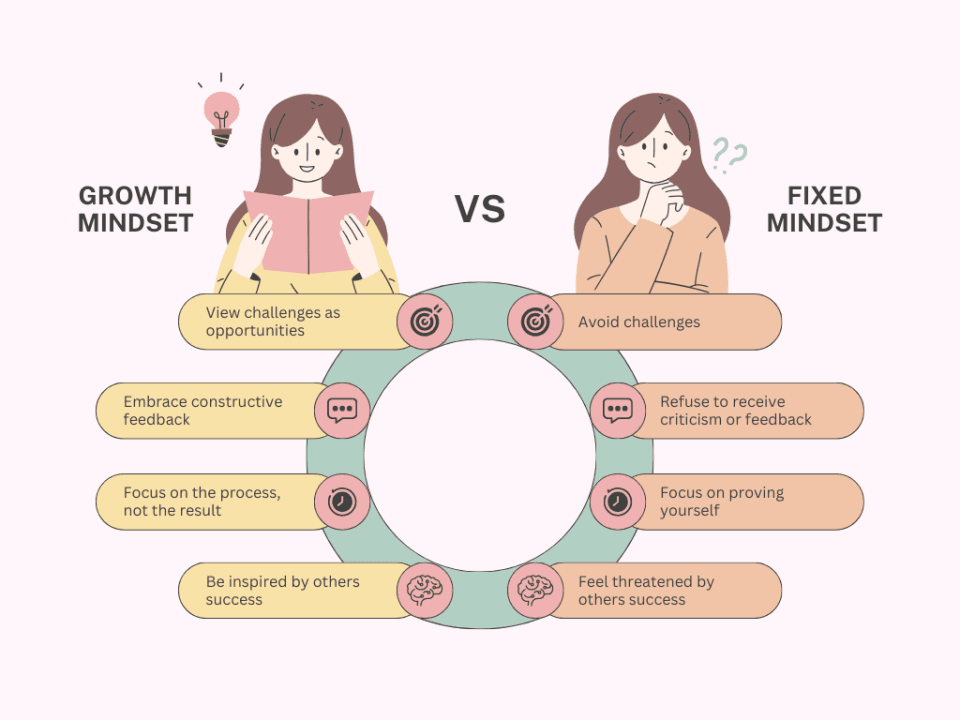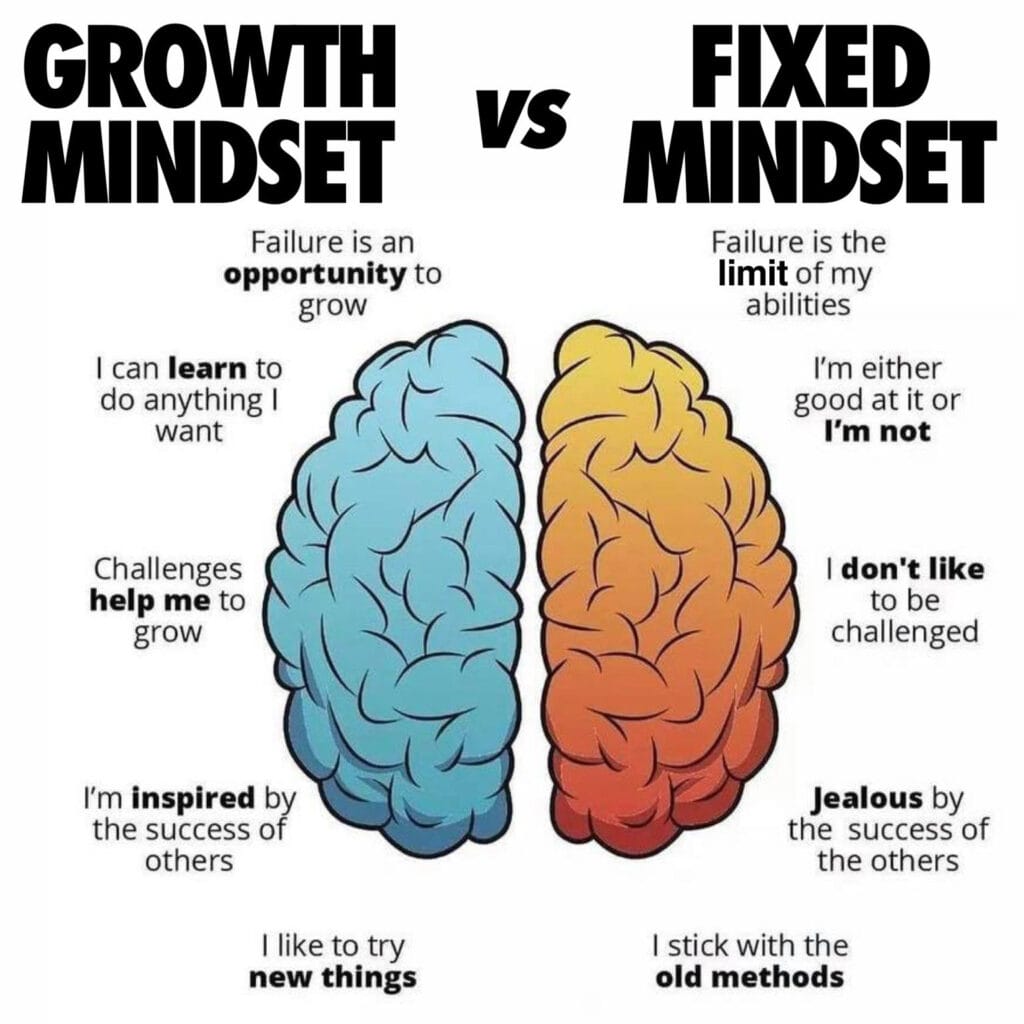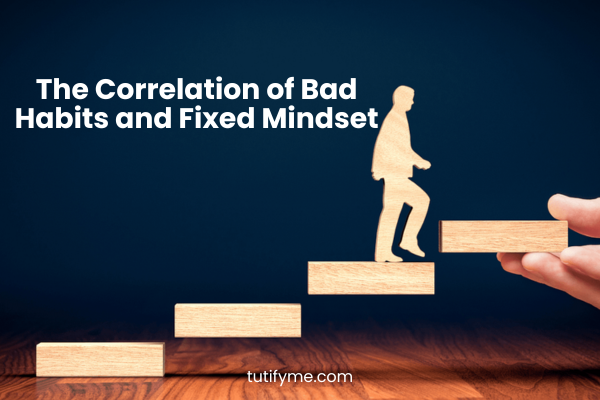I find it interesting when teachers explain concepts of fixed mindset through real-life examples. Since they are relatable, they are easy to understand and memorize.
We were all sitting in Modeling and Simulation class when my professor stood up, held a marker in his hand, stretched out his arm straight and kept it free in the air. We all observed. Then he said,
“If my arm stays in this position holding this marker in hand for a minute, will it affect/hurt me?” We said no. Then he said,
“If I stay in this position for half an hour, then will it affect me?” We said yes. And then he finally said,
“Here is the thing. The marker in my hand can be anything; our bad habits, our pain, our sadness, our failure. Holding it for a minute won’t hurt but holding it for an hour will. Because it is not the number of bad habits that we have, it is the amount of time we give to things that brings up their effect on our lives and routines.”
And I simply loved it. It stuck me right there.
We are the slaves of our routines. Sometimes, we don’t even understand and we are involuntarily following the same loop of habits.
That is the result of a fixed mindset just like this fixed position we talked about.

Also Read: The Five Primary Ingredients of A Student Life
Here’s how you can overcome a fixed mindset
Recognition Stage:
1. The first step while overcoming a fixed mindset is to recognize all those loops of bad habits.
It means being more mindful about how we spend a very random day in our routines. Especially as a student it is crucial to see how we spend our time on campus. Similarly, keep an equal track of how and where you invest your time once you get back home from school, college etc.
2. The second step is about knowing the time you dedicate to these habits that destroy you.
More than half of the time, we live in our heads. For instance, kids don’t even know when they mindlessly bite their nails while being busy doing a task or how often they check their phones even if it’s not needed.
Therefore, it’s important to not only be mentally aware but also aware of the time when we are indulged in these bad habits.

Action Stage:
Recognition alone isn’t enough to move from a fixed mindset to a mindset that is based on growth. The patterns formed in our minds are never removed. Instead, they are replaced by stronger and fresher patterns. This is where actions come into play.
It includes:
1. Trying one good thing every day:
There was a time I hated presentations because I felt the whole class would mock me. This delved me deeper into a self-assumed pool of insecurities.
The day I gave my first presentation and then all those times I kept presenting is when I felt new and proud of myself.
Trying good things is underrated but it has a BIG impact. The moment you face your fears in the eyes, they fade.

2. Going slow:
“Slowly is the fastest way to go.”
It’s not about doing 100 squats a day. It’s about doing it RIGHT even if it’s just ten squats a day. It’s about doing it in a way that it hits your muscle and you feel that you achieved something.
Be it any good thing that you start, it’s about getting it done right than getting it done fast.
Also Read: The Impact of Right Friendships on A Student’s Life
3. Forgiving yourself for the time you’ve wasted so far:
It is easier said than done. Once a person realizes how good they could be at something if they started earlier, it hits them. But it’s of no point. The moment you decide to move on from bad habits, you free yourself.
Forgiveness is freedom. It introduces you to newer and better opportunities where your immature version isn’t welcomed.
4. Refraining from victimizing yourself:
Knowing that you were wrong is okay. However, staying glued to your losses and bad patterns and hoping someone will knock at your door with a bouquet of sympathy isn’t a good idea.
There’s only one person who can make or break you. You know who that is? YOU.
5. Appreciating taking steps in the right direction, no matter how small they are:
I have a group of friends who are high-achievers and seeing them win influenced me to improve too. But I remember I’d often end up comparing my achievements with them.
Doing this never helped me enjoy the taste of my wins. That’s where my friends made me understand that everyone has their own strength and pace.
Therefore, never forget that your wins are yours. They do not need to be compared in order to be acknowledged.
I hope this helps! And I hope we start seeing all those barriers in our journey as bridges. Only then, we can walk towards our better versions and better mindsets.
Also Read: How to Achieve Your Goals as a Student

